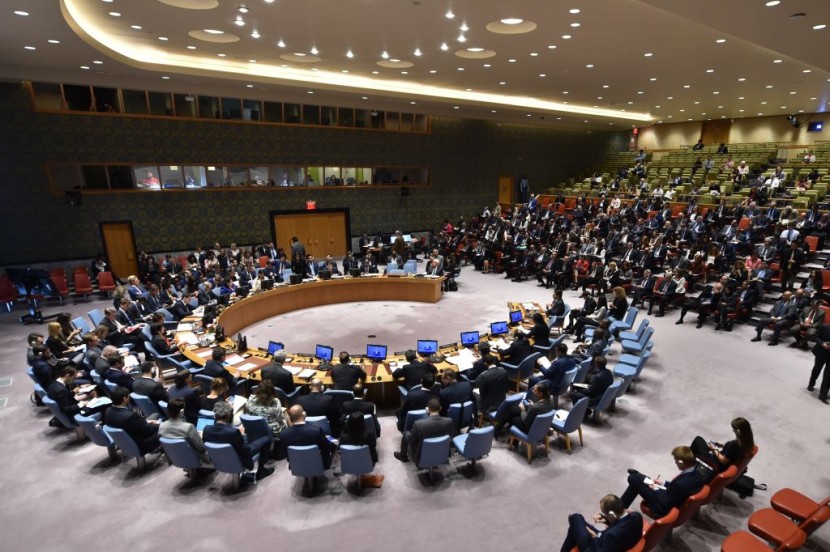
On Thursday, China and Russia rejected a US-led drive to impose more United Nations sanctions on North Korea in response to its continued ballistic missile tests, visibly dividing the UN Security Council for the first time since it began punishing Pyongyang in 2006.
The remaining 13 council members unanimously supported a resolution sponsored by the United States that advocated a ban on tobacco and oil shipments to North Korea, whose leader, Kim Jong Un, is a chain smoker. It would also ban the Lazarus cyber organization, which the US believes is affiliated with North Korea.
China, Russia Veto UN Resolution Against North Korea
Following US President Joe Biden's travel to Asia, North Korea fired three missiles, one of which was regarded to be its greatest intercontinental ballistic missile. It was the latest in a series of Security Council-banned ballistic missile tests this year. In response to the council's silence on North Korea, US Ambassador to the United Nations Linda Thomas-Greenfield stated earlier this month that it is time to stop granting implicit approval and begin taking action.
The Security Council has consistently and unanimously increased sanctions to cut off money for Pyongyang's nuclear weapons and ballistic missile programs over the last 16 years. Sanctions in Pyongyang were last strengthened in 2017. Since China and Russia have advocated for sanctions relief on humanitarian grounds. While they have delayed some action behind closed doors in the Security Council's North Korea sanctions committee, the vote on the resolution on Thursday was the first time they have openly broken unanimity, as per NDTV.
Vassily Nebenzia, Russia's UN Ambassador, told Reuters on Wednesday that he did not believe UN action would be particularly favorable to discussion with North Korea. China has also urged the US to take steps to convince Pyongyang to resume negotiations, which have been deadlocked since 2019, following three unsuccessful meetings between Kim and then-US President Donald Trump.
Pyongyang has put testing on hold for several years but has recently restarted long-range ballistic missile launches. The US and South Korea have warned that North Korea is planning its sixth nuclear test, VOA News reported.
Read Also : Trump's Losses in the Primaries Show His Dwindling Influence in the GOP as Pence Gains Traction in Georgia
West's Sanctions Against North Korea
Beijing also advised Washington that it should be more sincere and flexible in dealing with North Korea. Pyongyang launched three missiles Wednesday, defying UN sanctions on the country. One of the missiles is also believed to be capable of carrying nuclear bombs and delivering them to the United States. By prohibiting the import of foreign cigarette products, part of the restrictions will directly target heavy chain smoker Kim Jong-un.
Furthermore, sanctions will be imposed on North Korea's short-range missile program, cruise missiles, and intercontinental ballistic missiles, as well as any other delivery mechanism capable of delivering nuclear weapons. A taxon North Korean crude oil imports are also being mooted, to reduce the permissible quotation from 4 million barrels per year to 3 million. Refined gasoline production will also be decreased from 500,000 barrels per year to 375,000 barrels per year.
North Korea will be prohibited from exporting minerals, fuels, and other mineral products. The Lazarus Group, a North Korean hacker ring claimed to be headed by North Korean intelligence, would also have its assets blocked. Sanctions on the state would be disastrous for Kim Jong Un. The state has proclaimed the first officially declared cases of COVID-19, despite its refusal to accept international funding to deliver a vaccine campaign. To treat the infection, North Koreans were advised to consume hot tea and gargle with salt water, according to Express.
Related Article : US Baby Formula Shortage: FDA Struggles To Explain Slow Response During Session in Congress
@YouTube
© 2025 HNGN, All rights reserved. Do not reproduce without permission.








